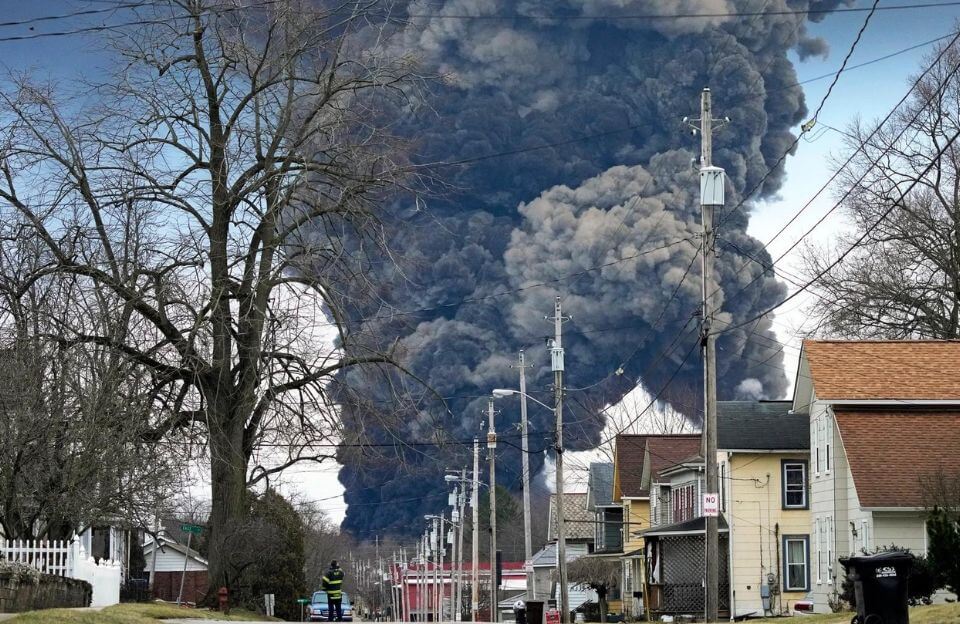
HEALTH
Global Warming is Already Killing Us
Temperature increases have been associated with a decline in mental health.

A landmark analysis by almost one hundred experts, including the World Health Organization, was recently released by the Lancet Countdown, and it warns that rising global temperatures will have severe consequences for human health, especially mental health. This seventh annual study expands on the findings of previous publications to reiterate a severe warning about the effects of climate change on human health.
Some effects of record-high temperatures are perhaps more predictable, such as an increase in illness due to exposure to heat waves and extremely high temperatures. However, the report noted that other, less obvious effects, such as an increase in the risk of mental health problems and the spread of infections, can have global impacts as well.
The paper claims that heat waves and other extreme temperature changes are linked to a deterioration in mental health and an increase in suicide ideation.
“Climate change affects people’s mental health in a variety of different paths,” Dr. Marina Romanello, executive director of the Lancet Countdown on Health and Climate Change report, told ABC News.
For example, “the severe mental health repercussions of calamities associated to extreme weather events are more obvious and easily attributed,” as Romanello put it. “However, the effects of climate change on mental health can also stem from other factors, such as exposure to high heat, which has been linked in the literature to an increase in interpersonal aggression, criminality, and self-harm.”
The survey found that young people were especially vulnerable to climate change-related melancholy, anxiety, substance abuse, and sleep problems.
Dr. Elizabeth Haase, chair of the American Psychiatric Association’s Committee on Climate Change and Mental Health, told ABC News that 84% of young people feel “moderately nervous” or “very anxious” about climate change. As a result of the ongoing pressures brought on by such events, “more drug and alcohol misuse, more child abuse and domestic violence, more poverty, poorer diets, greater homelessness, fragmented families, and communities” might be observed.
The paper also describes the dangers that rising temperatures pose to our physical health, in addition to the profound effects on our mental wellbeing.
From 2000–2004 to 2017–2021, there was an almost 70% rise in mortality attributable to heat illness among people aged 65 and up. Extreme heat can cause heat stroke, renal damage, and a worsening of preexisting heart and lung conditions. The likelihood of infectious disease outbreaks increases when temperatures rise because some infectious diseases can move more easily and survive in warmer conditions.
The use of fossil fuels is mostly to blame for climate change and poses other health hazards as well. Over a million fatalities in 2020 were attributed to air pollution, which has worsened as a result of the usage of fossil fuels, the report finds.
“The detrimental effects of climate change on human health are becoming immediately obvious. Its impacts on human health are catastrophic “ABC News quotes Dr. Georges Benjamin, the executive director of the American Public Health Association. The latest Lancet report provides more evidence of the devastating effects of climate change on humanity.
Is our health care system, currently overburdened by the COVID-19 pandemic, prepared to handle the potential fallout of all these potential health effects? No, it doesn’t hit that mark. According to Benjamin, “the world health is in immediate jeopardy,” and the health sector’s response to date has been inadequate.
Scientists warn that society is not ready to deal with the psychological effects of climate change. U.S. Surgeon General Vivek Murthy issued a warning about the mental health problem among young people last December.
Our already stretched-thin mental health care system has been unable to keep up with the recent, huge increases in the number of young people in need of treatment. The demand for such assistance is already high, and climate change is only anticipated to make it higher.
Only a small percentage of nations have accounted for the effects of climate change on mental health in their action plans, and only around one in four countries report having a program that incorporates mental health into disaster preparedness efforts, as stated in the Lancet research.

GET FORA IN YOUR INBOX.

THE LATEST
Crime
Turtle With $53 Million Worth of Cocaine Was Found By The US Coast In The Eastern Pacific
Turtle With $53 Million Worth of Cocaine Was Found By The US Coast In The Eastern Pacific In an unexpected …
February 28, 2023
Tech
Mysterious Flesh Pit National Park
Mysterious Flesh Pit National Park “Discover verdant forests, majestic scenery, and cosmic terror.” That’s the tagline on this eye-catching poster …
February 22, 2023
Science
How ‘Flat Earthers’ Persist After Being Proven Wrong Over And Over Again
How ‘Flat Earthers’ Persist After Being Proven Wrong Over And Over Again Flat-earthers believe one of the most curious conspiracy …
February 21, 2023
History
This Is The Only Existing Photo of Chernobyl Taken On The Morning of The Nuclear Accident
This Is The Only Existing Photo of Chernobyl Taken On The Morning of The Nuclear Accident The heavy grain is …
February 20, 2023







